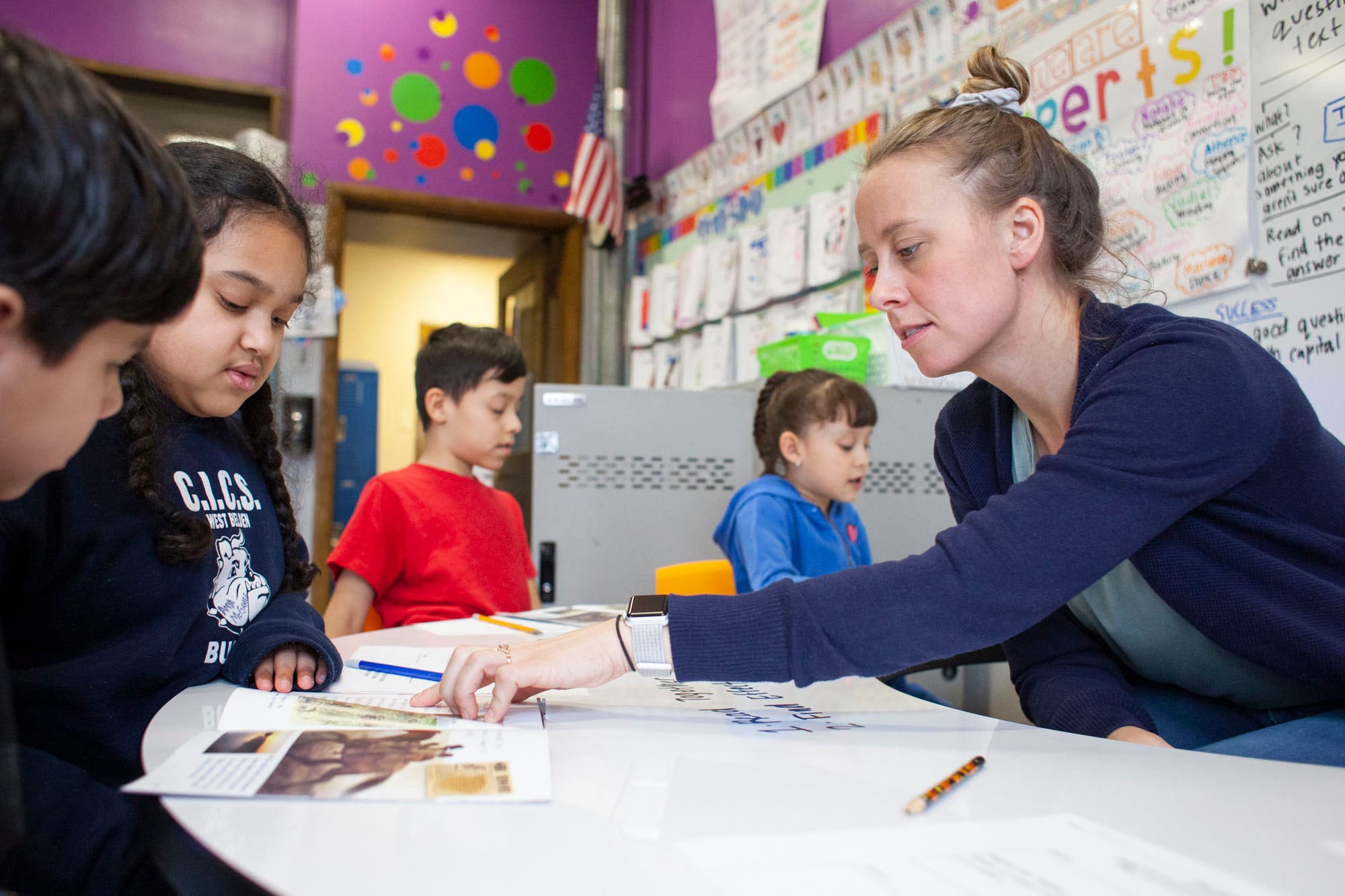Faced with a persistent lack of diversity in its teacher workforce and a need for more educators, Illinois’ school board will start grading teacher preparation programs, officials said Monday.
The Illinois State Board of Education gave a preliminary look at its new Educator Preparation Profile on Monday. The report has data from 52 colleges and universities in the state that offer more than 700 approved teacher preparation programs. On average, the programs produce 5,000 teachers every year. However, local school districts need more educators in the classroom.
Currently the state is reporting almost 2,000 teacher vacancies, particularly in special education and bilingual education.
“We have a high unmet demand for teachers across our state. As our student population grows increasingly diverse and multilingual, we have a high demand for more teachers of color. The profile that we are launching today uses data to support our preparation system in recruiting diverse educators and better meeting the needs of Illinois school districts,” said state Superintendent Carmen Ayala during a press conference.
Illinois’ teachers are 85% white, a percentage that has barely budged in years. In addition to recruiting more teachers and educators of color, the state hopes the report will be useful to improve programs, provide data to those hiring teachers, and provide students with insight into education programs.
The report card will also track the placement of candidates in high-need school districts, persistence rates among recent graduates working in a public school for three or more consecutive years, and the edTPA pass rate.
Christy Borders, director of the Cecilia J. Lauby Teacher Education Center at Illinois State University, said that the school will take advantage of new data that the report provides to improve their programs.
“Knowing how our teacher candidates do once they get into classrooms is important information that we didn’t previously have access to. We also receive information on where our teacher candidates are hired and how long they persist in public classrooms,” said Borders.
With this new data, the school can make decisions on whether they need to change their curriculum or increase support for students.
For Felipe Perez, director of teacher talent pipelines at Chicago Public Schools, the state’s report on teacher preparation programs will help the school district advise its own graduates on what programs to attend to be educators. Recently, Chicago announced a new initiative called “Teach Chicago Tomorrow” — a partnership with the city’s community colleges and Illinois State University in hopes of hiring 500 more of its own graduates as teachers in the district.
“Our district can better advise prospective teachers, our own current high school students, on best fit programs. Places where they will thrive and will best prepare them to teach in districts like ours. We’re very hopeful that this will increase the enrollment and completion rates of candidates of color, and thus put more diverse teachers into our districts classrooms,” he said.
Perez believes that the district’s hiring team could use the data to create better relationships with teacher preparation programs, make better hiring decisions, and increase teacher retention.
The creation of the teacher profile is one of the steps that the state board of education has taken this year to recruit and retain educators throughout the state. Amidst the coronavirus pandemic, the state has used $6.5 million from federal coronavirus funds for mentoring first-year teachers.






